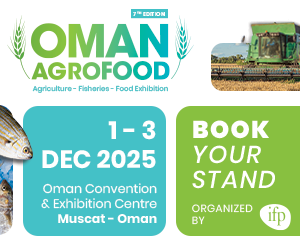As global leaders gather in Addis Ababa for the UN Food Systems Summit, calls are intensifying for a fundamental overhaul of how agri-food systems are financed, governed, and sustained, particularly across Africa.
Recent international discussions—ranging from the Nutrition for Growth Summit in Paris to the International Conference on Financing for Development (FfD4) in Seville—have underscored the urgent need for systemic transformation. These concerns are further amplified by the sobering findings of the 2025 State of Food Security and Nutrition in the World (SOFI) report.
According to the SOFI 2025 report, while hunger levels have declined in regions such as South Asia and Latin America, food insecurity has worsened in both rural and urban areas across Africa between 2022 and 2024. Moreover, the global gender gap in food insecurity, which had narrowed from 2021 to 2023, widened again in 2024—leaving women disproportionately affected by malnutrition.
Key drivers of this regression include conflict, climate volatility, and inflationary pressures in the wake of the COVID-19 pandemic. These combined challenges have disrupted progress toward Sustainable Development Goal 2 (SDG 2), which targets the eradication of hunger. Experts warn that Africa is not on track and that without urgent intervention, vulnerabilities across the continent will deepen.
Urgent Call for Long-Term Financing
In response, agricultural experts and development organizations are urging donors, investors, and multilateral financial institutions to rethink risk and financing models. Rather than short-term projects, they advocate for long-term, systemic investments using tools such as concessional finance, blended capital models, pay-for-results frameworks, and payments for ecosystem services (PES).
They also emphasize the need to finance food systems through interconnected sectors, including health, climate, and social protection, highlighting the role of agri-food systems as a core infrastructure of resilience.
Crucially, there is a growing consensus that farmers—particularly youth and women—must be placed at the centre of the agri-food agenda, not as passive beneficiaries of aid but as drivers of innovation and sustainable growth.
AGRA Highlights Progress, Warns of Setbacks
Speaking ahead of the summit, the Alliance for a Green Revolution in Africa (AGRA)—a pan-African organization focused on agricultural transformation—outlined both the progress and persistent challenges in building sustainable food systems across the continent.
AGRA reports that its collaboration with governments, donors, researchers, the private sector, and civil society has contributed to tangible outcomes, including:
42 policy reforms across 11 countries, cutting policy approval times from up to 10 years to as little as 3 years.
In Tanzania, reforms to fertilizer regulations boosted trade by 47% and cut prices by 10–40%.
Support for 10 National Agricultural Investment Plans (NAIPs) and 10 flagship programmes, mobilizing $1.4 billion, including $400 million in government contributions.
In Kenya, the 2019 Seed Act expanded access to certified seed for 2.5 million farmers.
Ethiopia trained 70,000 extension agents, reaching 15 million farmers, while Nigeria’s state councils helped attract $5 million in new investments.
However, AGRA warns that limited financing remains a critical bottleneck. Despite demonstrable progress, many successful models remain difficult to scale or replicate across countries, not due to a lack of innovation but due to declining investment.
Financing Gap Widens Amid Rising Need
According to development experts, Official Development Assistance (ODA) from G7 countries has declined by nearly 28% since 2021, even as debt burdens in low- and middle-income countries have grown, further shrinking fiscal space for essential investments.
Globally, it is estimated that $1.2 to $1.4 trillion annually—around 1% of global GDP—is needed to transform agri-food systems. This figure is modest compared to the $12 trillion lost annually to poor health, environmental degradation, and inequality.
A 2025 White Paper from the Global Donor Platform for Rural Development, which includes input from AGRA, argues that the real issue is not a shortage of capital, but how and where that capital is deployed. It estimates that responsible investments in food systems could unlock $4.5 trillion in new business opportunities each year.
Africa’s Moment for Transformation
As the summit progresses, experts say the central question is whether global and regional stakeholders will seize this moment to mobilize the required capital, creativity, and courage to transform food systems across Africa.
The message from AGRA and other organizations is clear: transforming food systems is not a luxury, but a necessity—one that intersects with climate action, nutrition, rural employment, and inclusive economic growth.
Source: The East African











































































